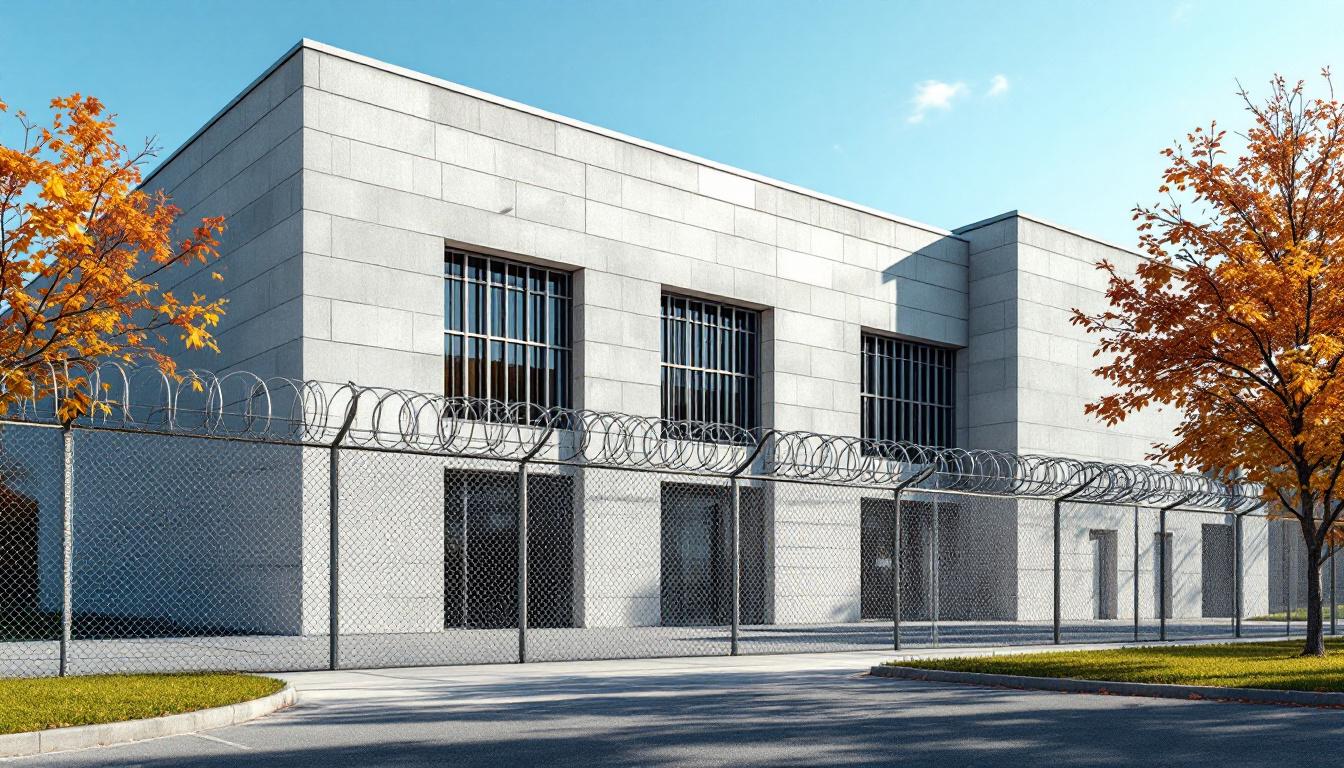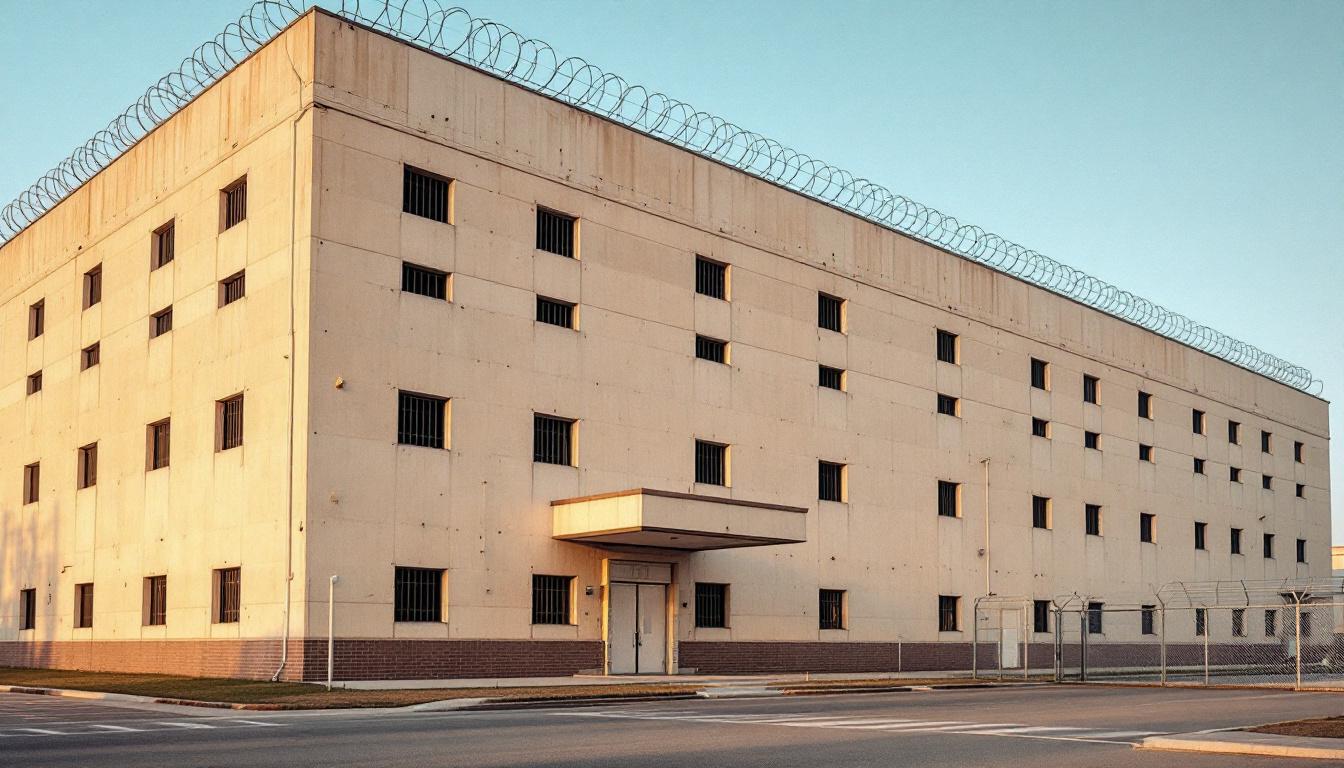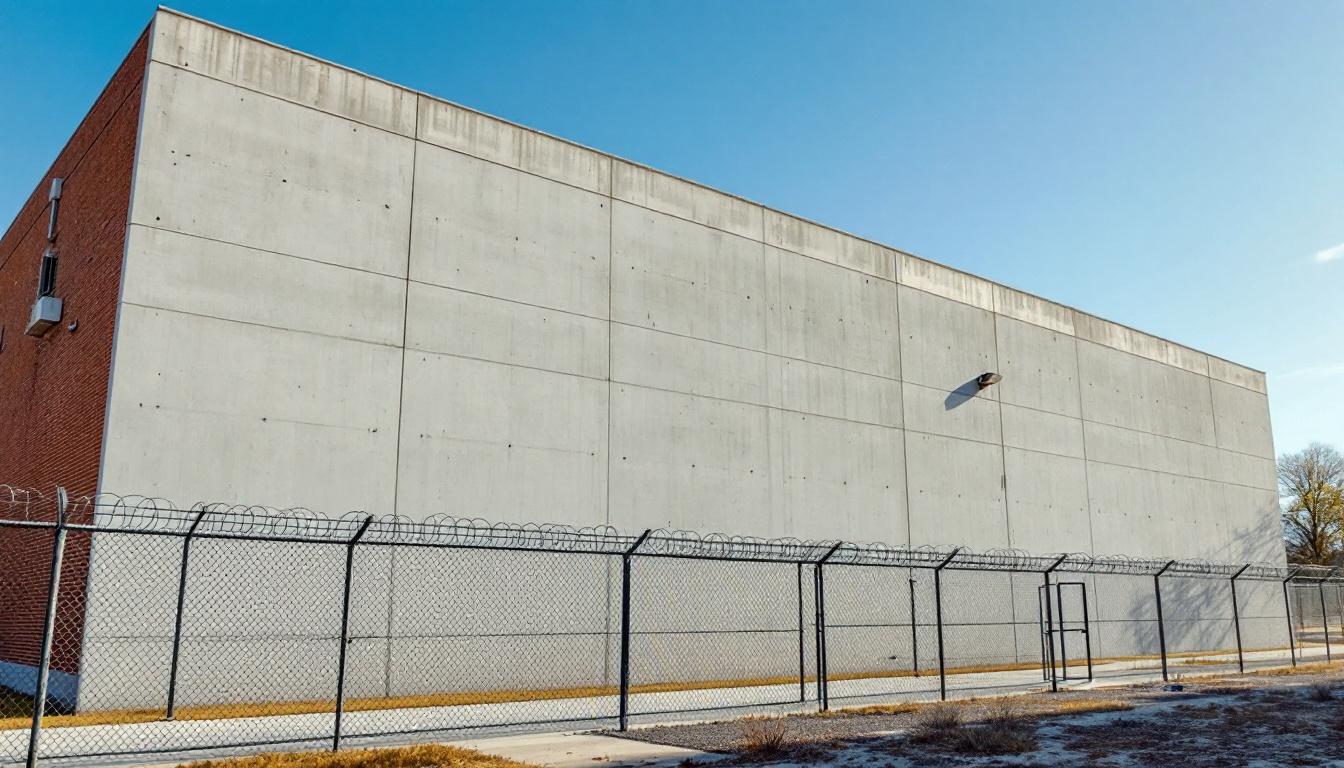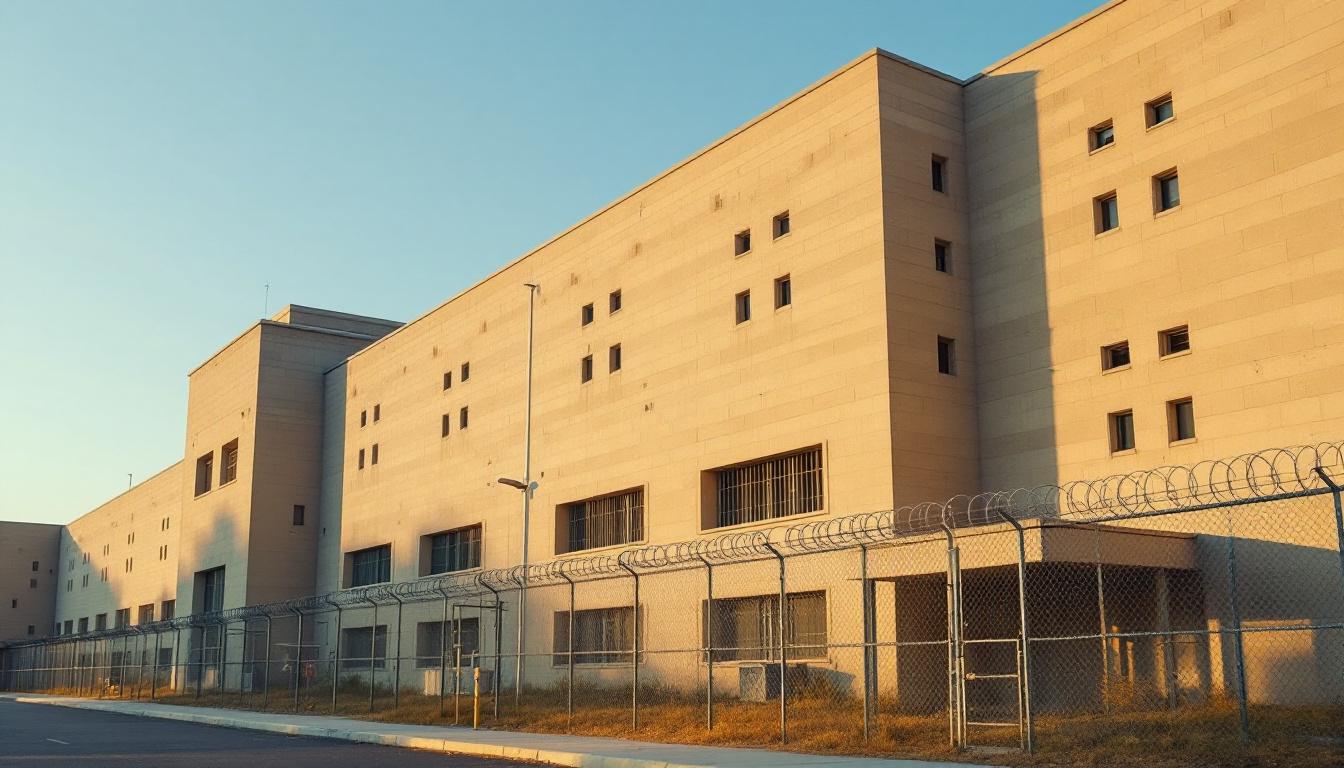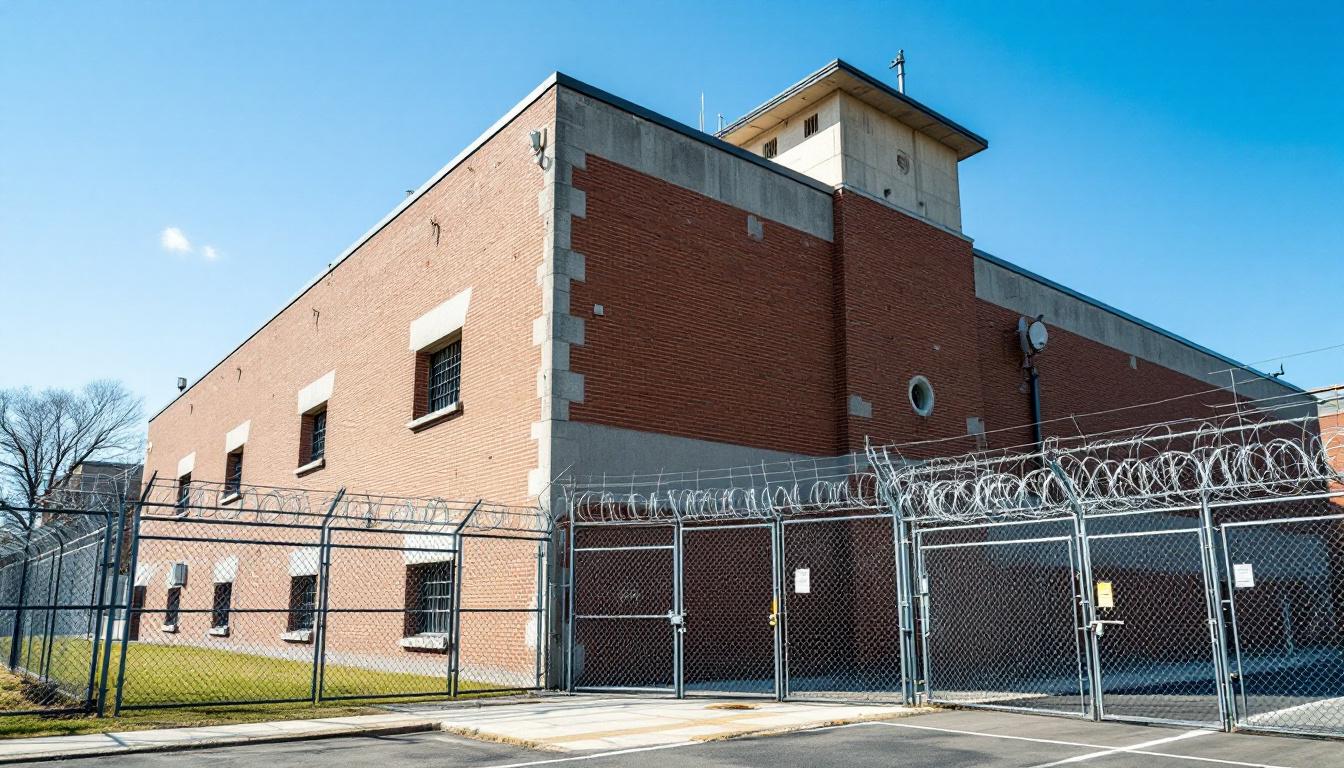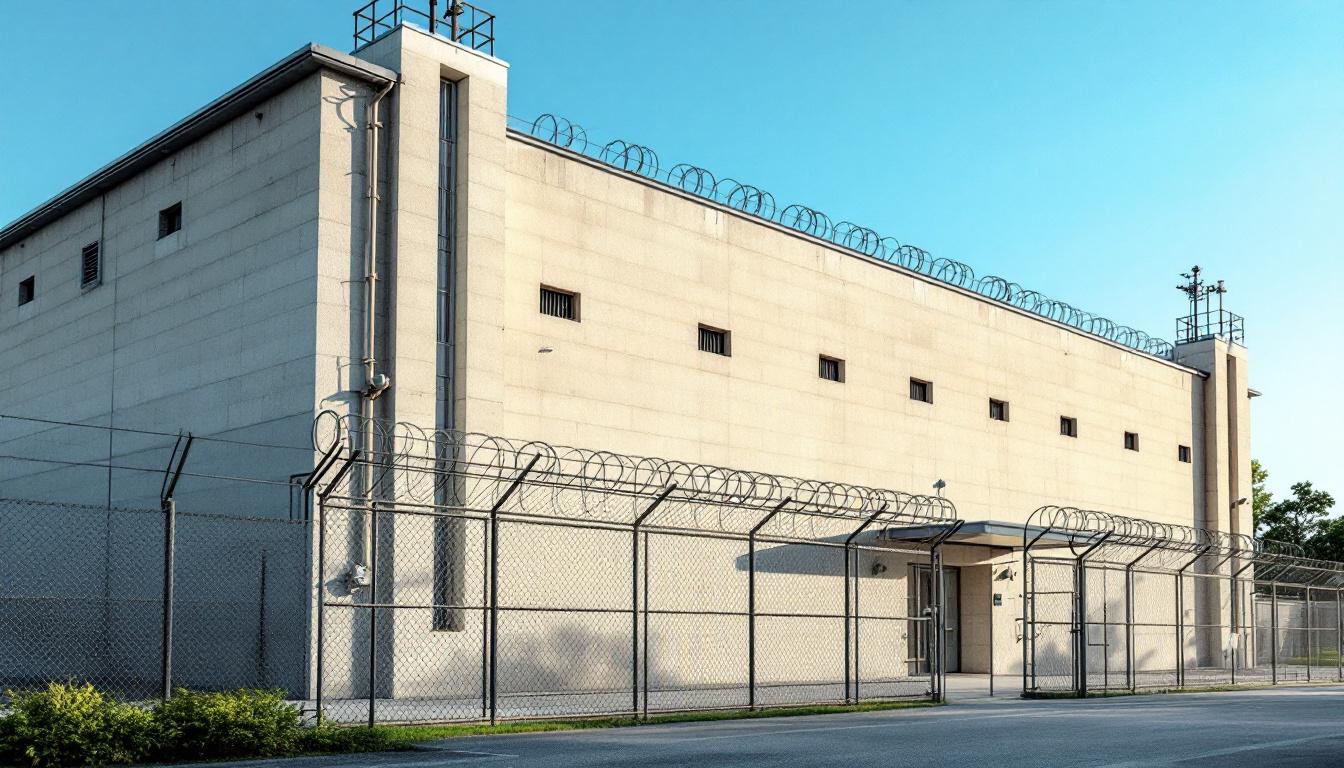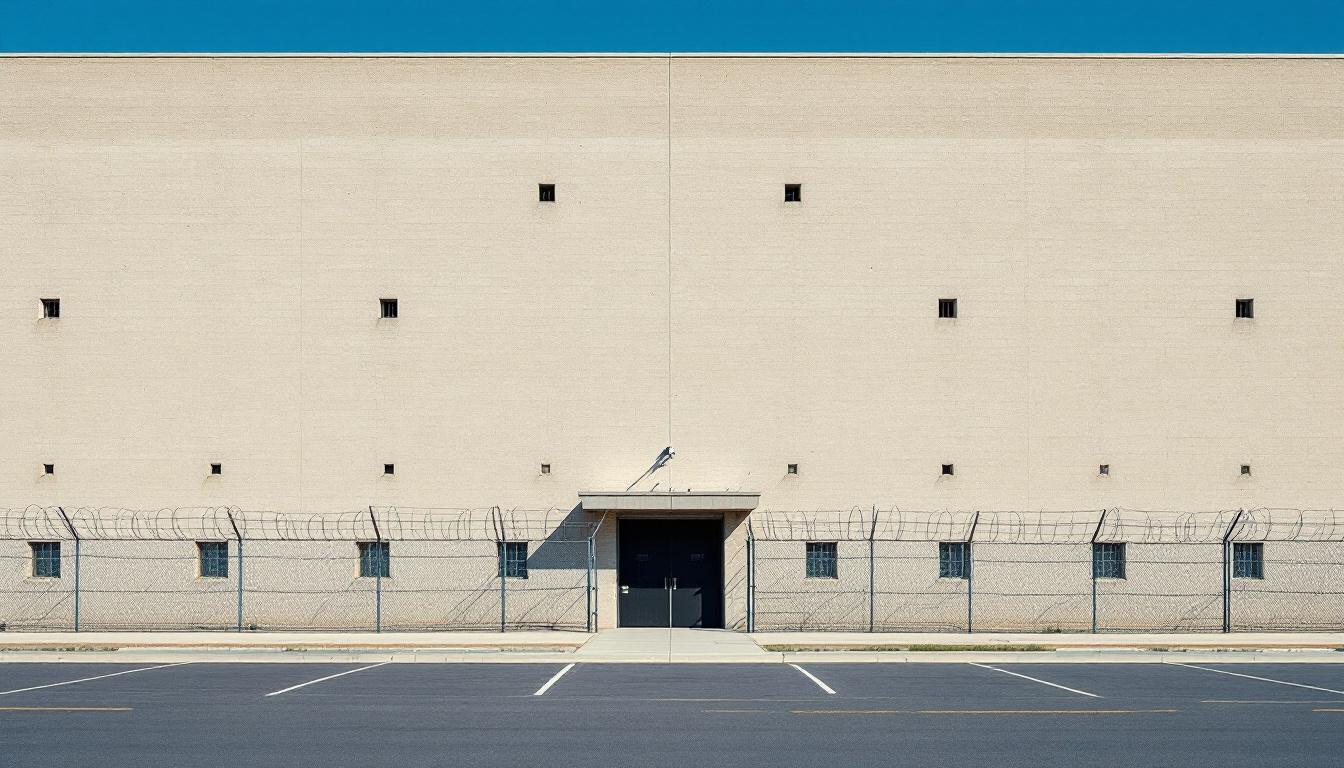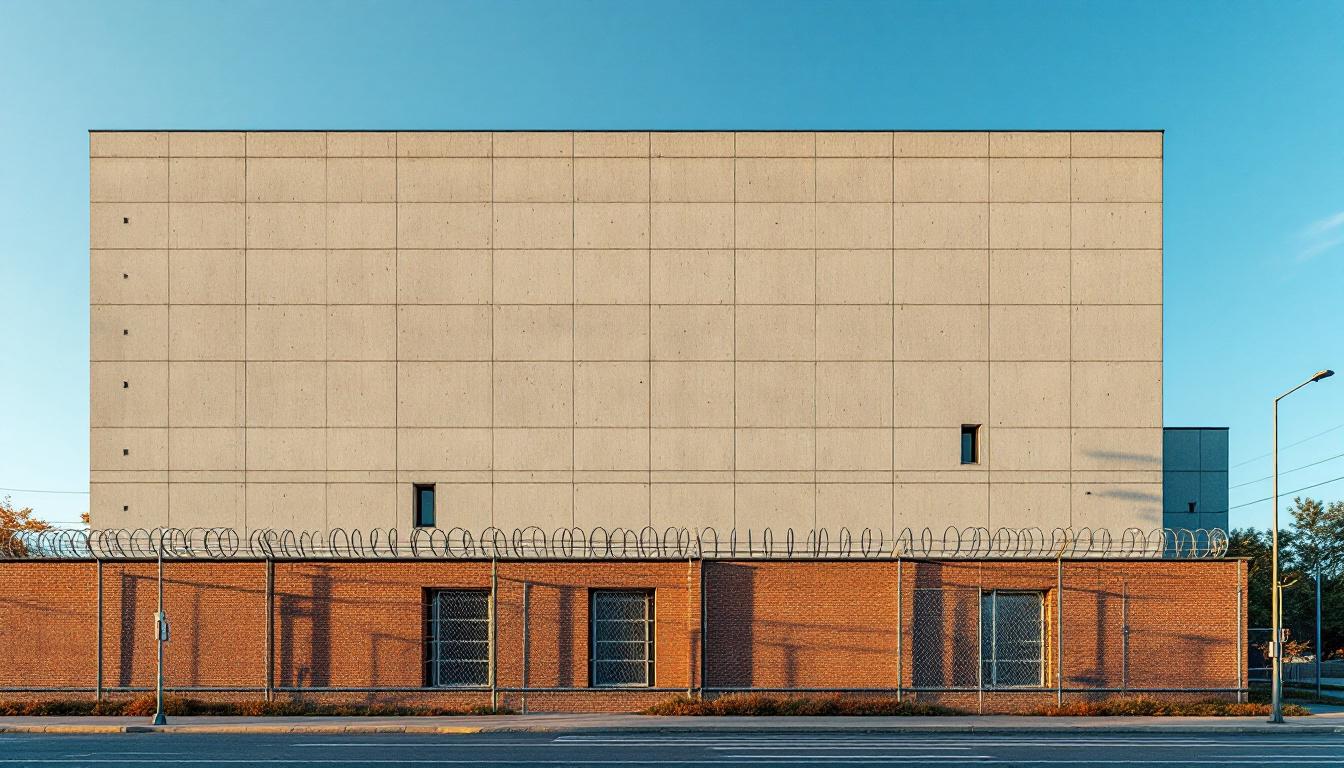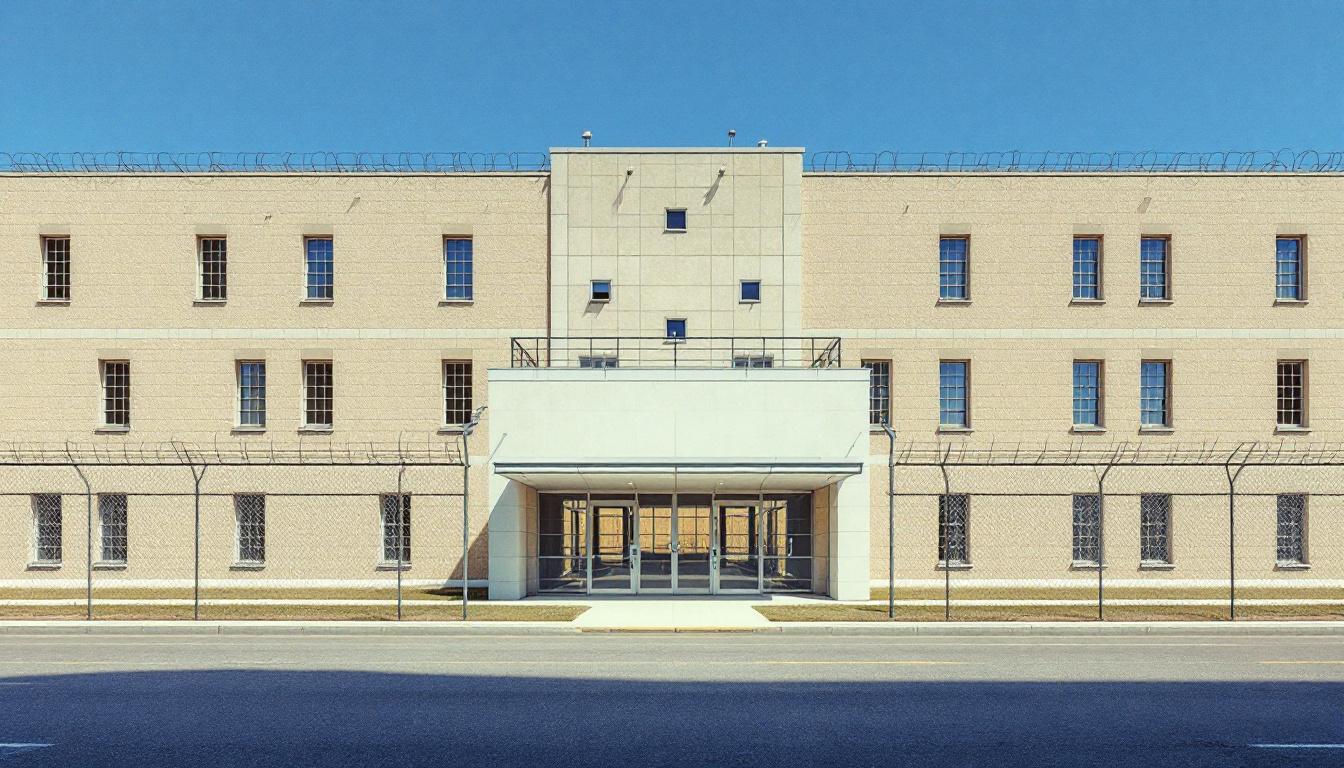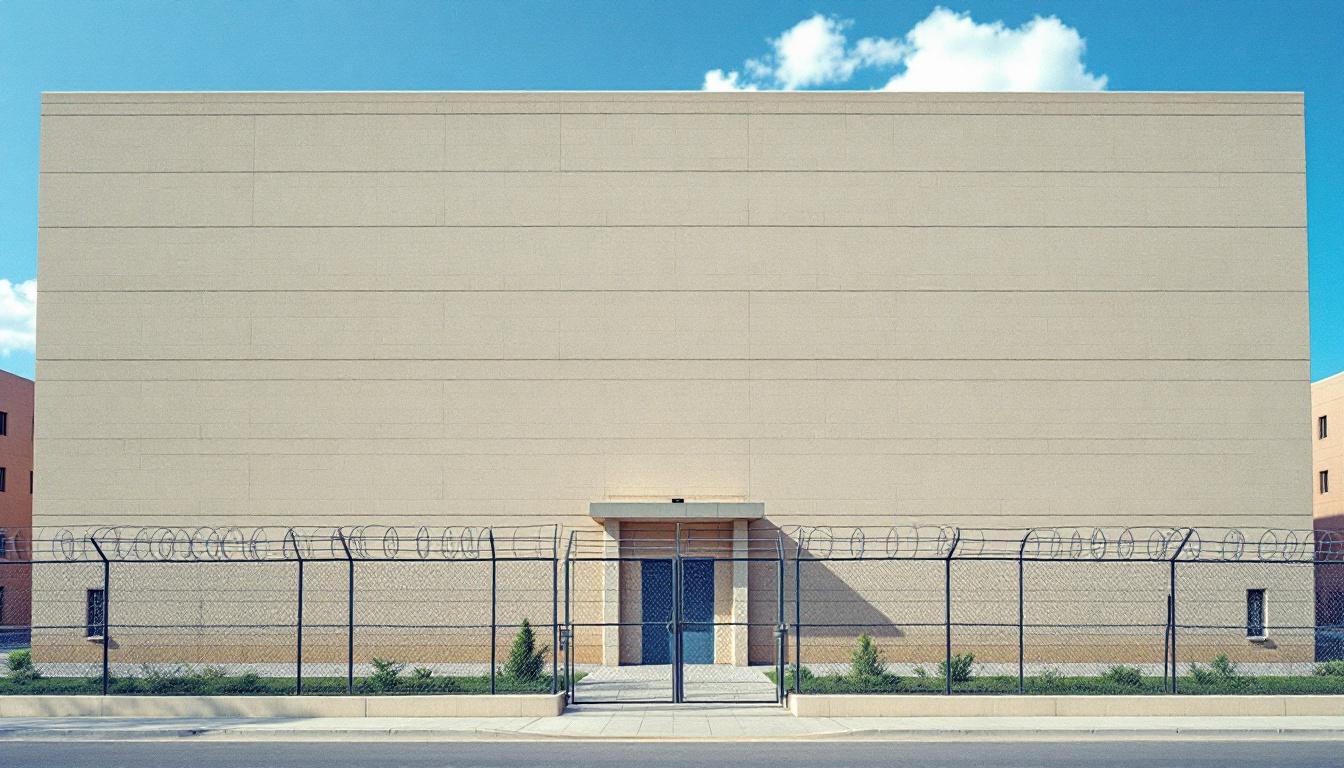
Quick Navigation
How to contact an inmate at South Florida Reception Center
This comprehensive guide will walk you through how to connect with an inmate at South Florida Reception Center. Follow the steps below to find an inmate and send letters and photos:
- Search for the inmate using our search tool below
- Create your account or log in to Penmate
- Write your message (up to 6,000 characters)
- Send instantly - inmates receive printed copies daily
Find an Inmate
Search for an inmate to start communicating today
Tip: You can search by first name, last name, or inmate ID number
To contact a person at South Florida Reception Center start by searching for the person on the official facility website. Perform a search by following these steps:
- Step 1: Enter their first name and last name into the search form and click "Search"
- Step 2: Locate their inmate record
- Step 3: Write down their Inmate ID and any housing information provided
Important! Be sure to enter the person's full name. Nicknames should not be used.
How to Send Messages to Inmates

You can use your phone or computer to send emails, letters, and photos to an inmate. Messages are sent electronically to inmate tablets or kiosks at the facility. If you would like to send a message, start by searching for an inmate at South Florida Reception Center.
Sending Photos and Postcards

A great way to send love and support to a loved one at South Florida Reception Center is to send photos and postcards. It only takes a few minutes to send photos from your phone and it makes a huge difference. You can also mail postcards with words of support and inspiration, or design your own postcard for special moments like birthdays and holidays.
Important! Be sure not to send any explicit photos or they may not be approved by the facility. You can also use a photo printing app like Penmate to make sure your photos are printed at the correct size (4x6 or 3x5) and are mailed according to the rules and regulations of South Florida Reception Center.
Frequently asked questions about South Florida Reception Center
-
How long does it take to deliver a message?
If you're sending an email message your letter is usually delivered within 24-48 hours. For messages sent via mail you should expect delivery within 3-7 days. All messages will need be approved by South Florida Reception Center.
-
How much does it cost to send a message to South Florida Reception Center?
You can send a message free using your phone or mail a message via USPS for the price of a $0.60 stamp and envelope. You can also purchase credits or e-stamps from services starting at $1.99.
-
What services can I use to contact an inmate at South Florida Reception Center?
Penmate
You can use Penmate to send letters and photos to an inmate from your phone. It's an easy way to stay in touch during your loved one's incarceration. Use the inmate locator to find an inmate's location and contact information, then you can send messages within a few minutes.
Securus messaging
Securus may be another option for communicating with an inmate at South Florida Reception Center. You can create a friends and family account and purchase credits to send messages. All messages will be reviewed and must be approved by the facility.
JPay
Some county jails and state prisons may support sending messages with JPay. You must register an account with the system, find your loved one, and purchase stamps to send messages. For some locations you can also attach photos.
Smart Jail Mail
You may also check if Smart Jail Mail is available at South Florida Reception Center. Smart Jail Mail is operated by Smart Communications and has contracted with some state and county jails. After purchasing credits, your messages and photos are sent to the facility, printed out, and then handed out to your loved one.
-
What is the mailing address of South Florida Reception Center?
Mailing address:
South Florida Reception Center
14000 NW 41st St
Doral, FL 33178
Phone: (305) 592-9567Business hours:
- Monday: Open 24 hours
- Tuesday: Open 24 hours
- Wednesday: Open 24 hours
- Thursday: Open 24 hours
- Friday: Open 24 hours
- Saturday: Open 24 hours
- Sunday: Open 24 hours
-
What are the visiting hours at South Florida Reception Center?
Visiting hours at South Florida Reception Center vary by housing unit and security level. Generally, visits are scheduled on weekends and holidays, with some facilities offering weekday visits. Contact the facility directly at (305) 592-9567 or check their website for the current visiting schedule. Visits typically last 30-60 minutes and must be scheduled in advance.
-
What items are prohibited when sending mail to South Florida Reception Center?
Prohibited items typically include: cash, personal checks, stamps, stickers, glitter, glue, tape, staples, paperclips, polaroid photos, musical or blank greeting cards, hardcover books, magazines with staples, and any items containing metal or electronics. Only send letters on plain white paper with blue or black ink. Photos must be printed on regular photo paper (no Polaroids). Always check with South Florida Reception Center for their specific mail policies.
-
How do I send money to an inmate at South Florida Reception Center?
You can send money to an inmate at South Florida Reception Center through several methods: 1) Online using JPay, Access Corrections, or the facility's approved vendor, 2) Money orders mailed directly to the facility with the inmate's name and ID number, 3) Kiosks located in the facility lobby, or 4) Over the phone using a credit or debit card. Fees vary by method, typically ranging from $2.95 to $11.95 per transaction.
-
Can I schedule a video visit with an inmate at South Florida Reception Center?
Many facilities now offer video visitation as an alternative to in-person visits. At South Florida Reception Center, video visits may be available through services like Penmate, Securus Video Connect, GTL, or ICSolutions. Video visits typically cost $10-20 for 20-30 minutes and must be scheduled in advance. You'll need a computer or smartphone with a camera and reliable internet connection. Contact the facility for their specific video visitation policies and approved vendors.
-
What identification do I need to visit an inmate at South Florida Reception Center?
All visitors must present valid government-issued photo identification such as a driver's license, state ID, passport, or military ID. Minors must be accompanied by a parent or legal guardian who can provide the minor's birth certificate. Some facilities require visitors to be on the inmate's approved visitation list, which may require a background check. Contact South Florida Reception Center for specific ID requirements and visitor approval procedures.
-
How can I find out an inmate's release date?
To find an inmate's release date at South Florida Reception Center, you can: 1) Use the online inmate search tool if available, 2) Call the facility's records department, 3) Contact the inmate's case manager or counselor, or 4) Have the inmate provide this information during a call or visit. For privacy reasons, some facilities only release this information to immediate family members.
Facility Overview
Contact Information
South Florida Reception Center14000 NW 41st St
Doral, FL 33178
Phone: (305) 592-9567
Official Website
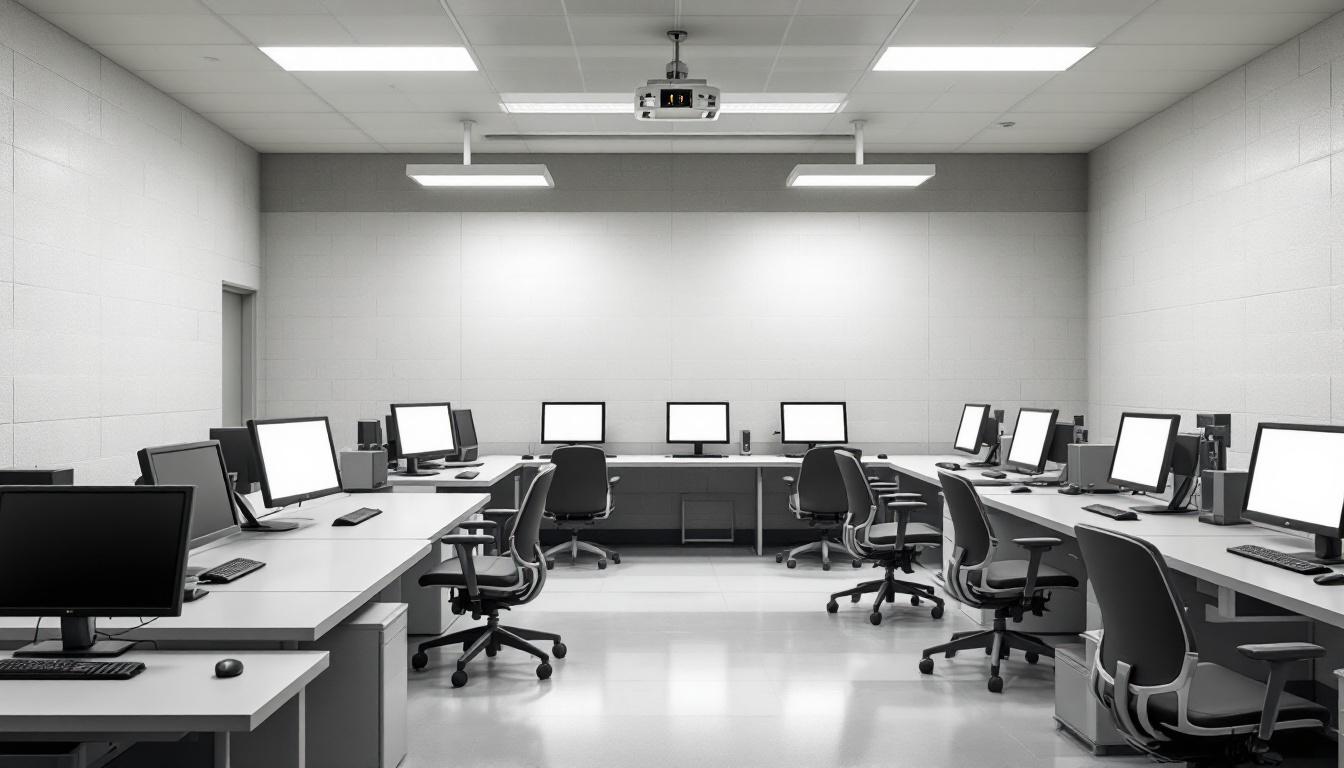
About South Florida Reception Center
Communities throughout South Florida rely on comprehensive intake and assessment services that help ensure effective placement and programming decisions within the state's correctional system. The South Florida Reception Center in Tampa serves this critical function by providing thorough evaluation processes for individuals entering the Florida Department of Corrections system from the surrounding region.
Located in Tampa, this FL correctional facility operates as a reception and intake facility, focusing primarily on the systematic assessment and classification of newly admitted individuals. The center typically conducts comprehensive evaluations that may include medical screenings, psychological assessments, educational testing, and security classification reviews. These evidence-based assessment processes help determine appropriate housing assignments, programming needs, and facility placements throughout the state system. Staff generally work to gather detailed information about each person's background, risk factors, and potential treatment needs to support informed decision-making about their correctional journey.
The facility's role extends beyond initial processing to include orientation services that help individuals understand institutional procedures and available programs. Inmates services at the center may encompass basic educational assessments, substance abuse screening, and mental health evaluations that inform future programming recommendations. As part of Florida's broader rehabilitation approach, the center typically maintains connections with various treatment and educational programs available throughout the state system, helping to match individuals with appropriate resources based on their assessed needs and security classifications.
Programs & Services
Personal transformation begins with comprehensive assessment and classification services that identify each inmate's individual needs and potential pathways for growth. The facility typically emphasizes a structured approach to rehabilitation, where intake procedures carefully evaluate educational backgrounds, vocational interests, and therapeutic requirements. This systematic evaluation process often serves as the foundation for developing personalized development plans that address both immediate needs and long-term reintegration goals.
Educational services may provide inmates with opportunities to advance their academic credentials through various learning programs designed to build essential skills. Computer literacy training often helps participants develop technological competencies that are increasingly vital in today's workforce. Furthermore, vocational services typically include automotive repair training, which can equip inmates with hands-on technical skills and industry-relevant knowledge that may enhance their employment prospects upon release.
Support services often encompass work release opportunities that allow eligible inmates to maintain employment connections while serving their sentences. Agriculture programs may provide practical experience in farming and landscaping techniques, offering both therapeutic benefits and potential career pathways. Furthermore, substance abuse treatment services typically address underlying addiction issues through structured therapeutic interventions, recognizing that successful reintegration often requires addressing the root causes of criminal behavior and developing healthy coping strategies for long-term recovery.
Daily Life & Visitation
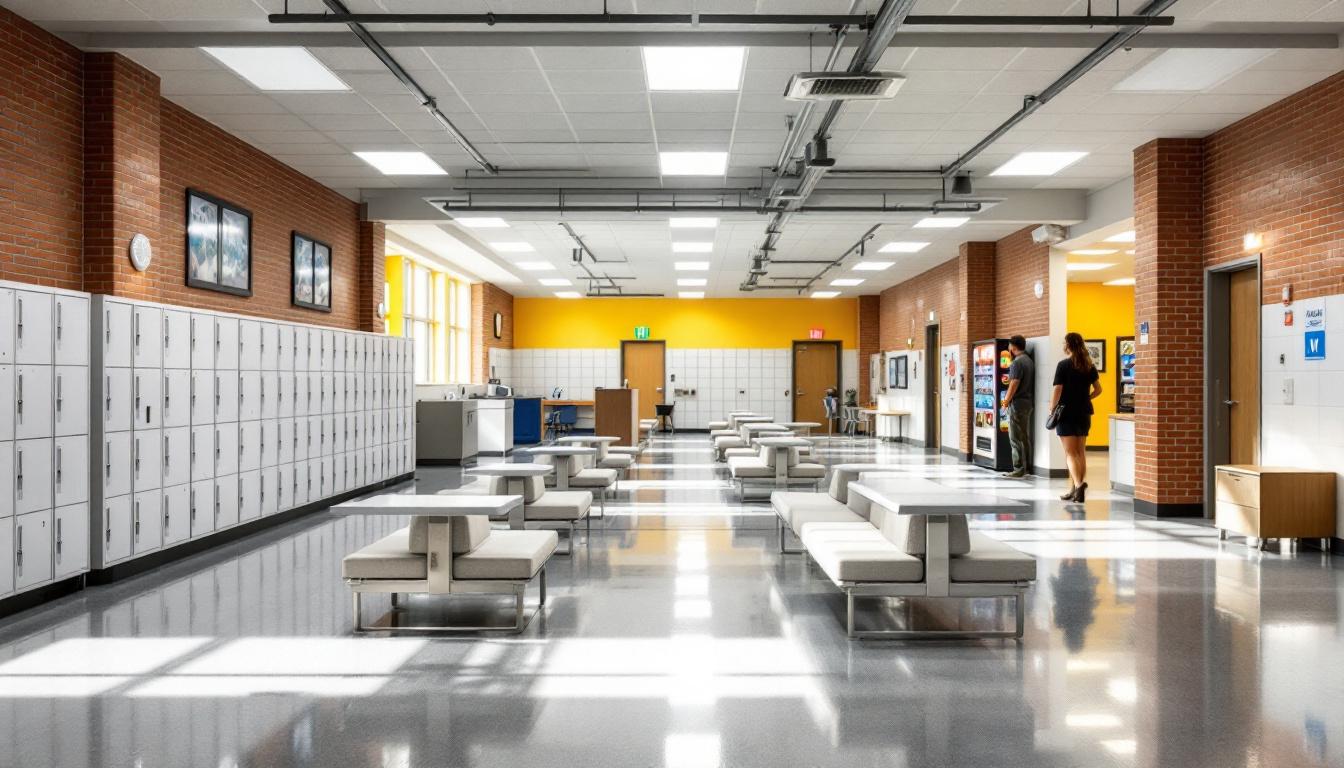
The institutional environment at South Florida Reception Center shapes every aspect of daily existence, with concrete walls and controlled movements defining the physical boundaries of inmate life. Inmates currently navigate a highly structured routine that continues throughout their stay, with designated times for meals, counts, and various activities. The facility typically operates on a regimented schedule that provides predictability, helping inmates adapt to the institutional setting through consistent daily patterns.
Housing units generally accommodate multiple inmates in dormitory-style or cell arrangements, depending on classification levels and available space. Inmates usually receive basic furnishings including a bed, storage area, and access to shared bathroom facilities. Furthermore, the dining hall serves meals at scheduled intervals, with inmates typically eating in designated shifts to manage the population flow. Personal property remains limited to approved items, and commissary services may offer additional food items and personal care products for those with available funds.
Although the environment can feel restrictive, various programs provide structure and purposeful activity throughout the day. Work assignments often include facility maintenance, food service, and laundry operations, giving inmates opportunities to develop skills while contributing to daily operations. Recreation periods typically allow for outdoor exercise, sports activities, and access to library resources when available. Family connections continue through scheduled visitation periods and telephone privileges, which generally operate within specific timeframes and guidelines. These communication opportunities help inmates maintain important relationships while adapting to their current circumstances.
Ready to Connect?
Start communicating with your loved one today
Search for an Inmate
